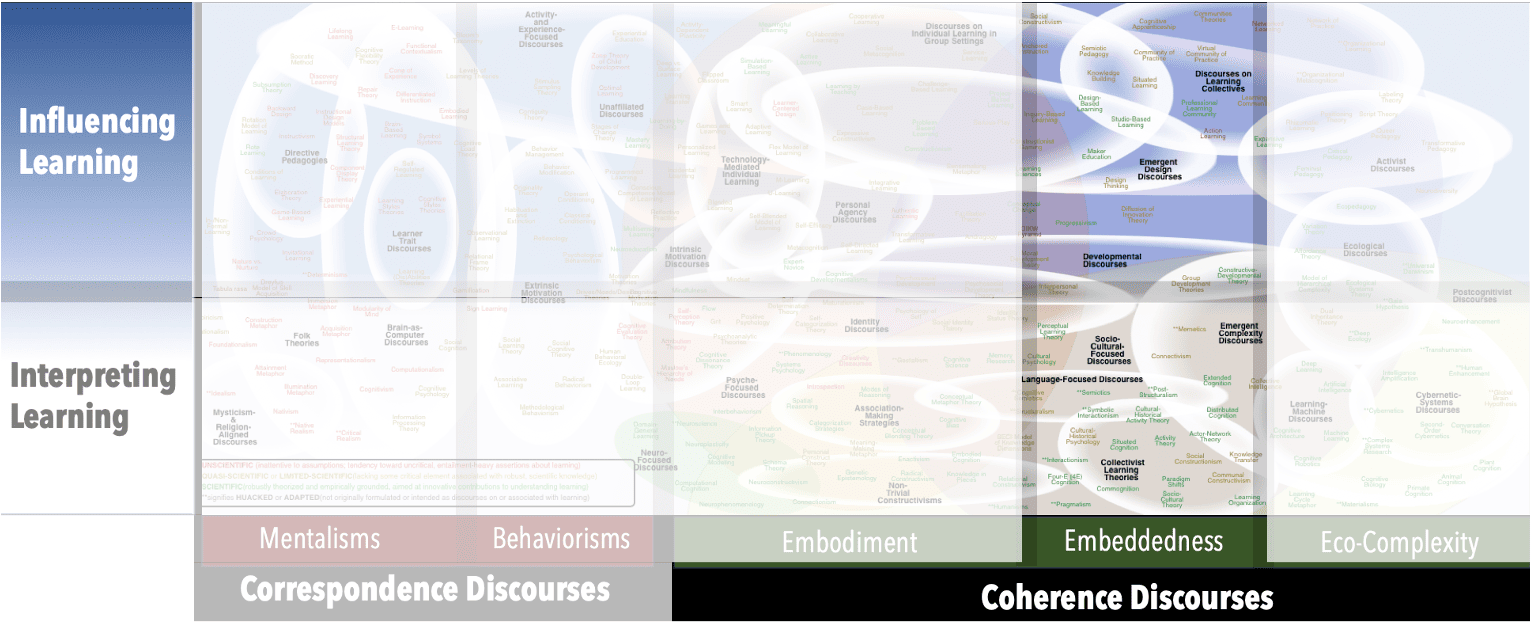Focus
Perspectives on knowledge/knowing anchored to human collectivity
Principal Metaphors
- Knowledge is … what works; shared hallucination
- Knowing is … maintaining collective coherence
- Learner is … a nested system
- Learning is … adapting; participating
- Teaching is … mentoring; empowering
Rise to Prominence
mid-1900s (in formal education)
Synopsis
Intersubjectivity refers to the perspective that human knowledge has to do with social accord, both implicit and explicit. Collective knowledge is seen to unfold from and be enfolded in individual knowing, and so encompasses matters of identity, morality, and ethics. Intersubjectivity tends to be associated with Discursive Ontologies:
- Discursive Ontology – the suggestion that understandings of what exists are shaped or constituted through discourse. A Discursive Ontology rejects the idea of a reality that is independent of human thought or language, instead proposing that the categories and structures used to describe the world are part of what creates or shapes experienced reality.
Concisely, humans are seen as living together in co-constructed hallucinations as coherent worlds arise through intricate networks of postulates and inferences. These shared hallucinations carry with them criteria for truths and codes of ethical action.
Commentary
Perhaps oddly, the now-commonplace realization that social and cultural matters are integral to formal education didn’t figure prominently into educational practice or research until about 50 years ago, when an array of collectivist-oriented issues pressed into the educational imagination. This disruptive moment was spurred by various social justice movements, emergent critical discourses, situated theories of learning, and the burgeoning social sciences. Prominent themes associated with Intersubjectivity have included interrogation of discourses used to frame identity and to deploy power, strategies around participation and engagement in collective process, and the promotion of social justice – topics that are integral to most versions of Democratic Citizenship Education.
Subdiscourses:
- Discursive Ontology
Map Location

Please cite this article as:
Davis, B., & Francis, K. (2024). “Intersubjectivity” in Discourses on Learning in Education. https://learningdiscourses.com.
⇦ Back to Map
⇦ Back to List
